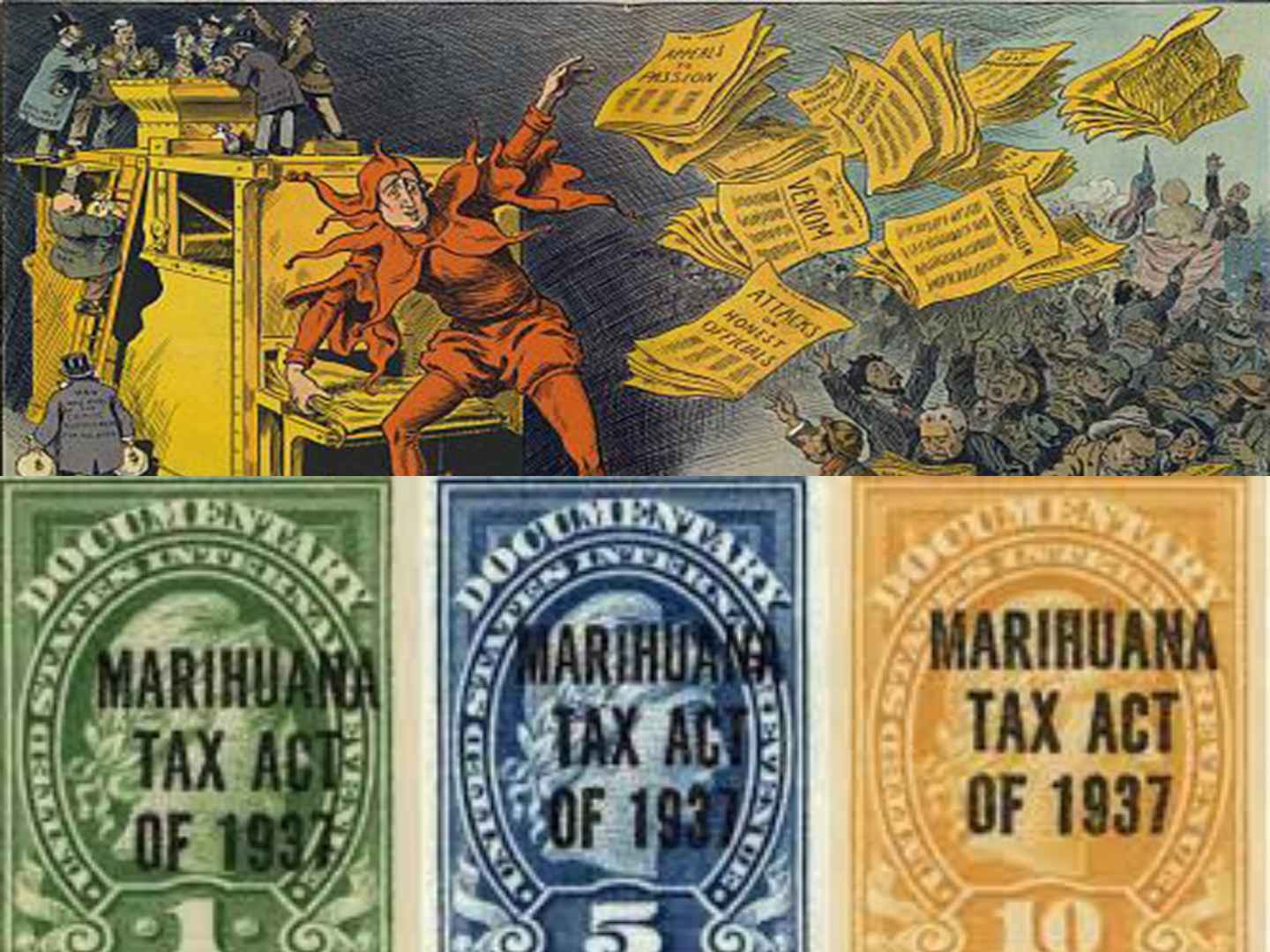The Curious Case of the Marihuana Tax Act

Today, we’ll take a little history tour of one of the most socially damaging Acts ever passed by the American government, the 1937 Marihuana Tax Act.
It all started in the early 20th century when the government began to crack down on the use of drugs, including cannabis. The Bureau of Narcotics, led by the infamous Harry J. Anslinger, was on a mission to rid America of the so-called "evil weed.” But here's the thing: there wasn't actually any real evidence that cannabis was harmful. In fact, it had been used for millennia as a medicine and was even listed in the US Pharmacopeia until 1942. But that didn't stop Anslinger and his cronies from demonizing cannabis and spreading propaganda about its supposed dangers.
And so, in 1937, the Marihuana Tax Act was born. This piece of legislation essentially made cannabis illegal by imposing a hefty tax on anyone who wanted to sell or possess it. The tax was so high that it effectively made cannabis prohibitively expensive and difficult to obtain.
A Sinister Strategy Unfolds
But here's where things get even weirder. The act didn't actually use the most commonly used word at the time, cannabis—instead, it referred to the plant as "marihuana." Why? Well, it's believed that Anslinger and his associates purposely used a Spanish spelling of the word in order to make it seem more foreign and exotic. Because nothing strikes fear into the hearts of Americans quite like something that's foreign and exotic, right?
But the real kicker? The Marihuana Tax Act wasn't even really about cannabis. It was actually a sneaky way for the government to go after the drug that they really had their sights set on: opium. See, opium was already heavily regulated, but the government wanted to crack down even harder on it. So they used the Marihuana Tax Act as a cover to slip in some new regulations on opium.
Hearst's Hand: Propaganda, Power, Profit, and Personal Vendettas
If that’s not wild enough, did you know that William Randolph Hearst played a role in the passage of the Marihuana Tax Act of 1937? Yes, that's right, the media mogul who gave us yellow journalism and Citizen Kane was also involved in the regulation of cannabis.
Hearst was no stranger to controversy. He built his media empire on sensational headlines and scandalous stories, and he wasn't afraid to use his power to shape public opinion. So when the government proposed a tax on cannabis, Hearst saw an opportunity to capitalize on the controversy.
At the time, cannabis was largely unknown to the American public. It was seen as a drug used by Mexicans and African American jazz musicians, and it was associated with crime and deviance. Hearst, who owned a number of newspapers and magazines, used his publications to spread fear and misinformation about the plant. He published stories about "marijuana-crazed" criminals and claimed that the drug was causing a wave of violence and insanity across the country.
There is also the idea that William Randolph Hearst opposed cannabis and hemp because it threatened his timber and paper interests. This isn’t just some wild conspiracy—it actually holds some weight. Hearst owned massive swathes of timberland and was heavily invested in the paper industry, which powered his newspaper empire. Hemp, a fast-growing and more sustainable alternative to wood pulp, had the potential to disrupt that industry. So, the theory goes that Hearst, motivated by self-interest, used his media machine to demonize cannabis—and by extension, hemp—with sensationalist stories that stirred public fear.
Now, while there isn’t hard proof that Hearst’s anti-cannabis stance was entirely about protecting his timber investments, the timing sure raises eyebrows. Hearst had both the motive and the means to sway public opinion and policy in his favor. So, while it's a nuanced situation with various factors at play, his financial interests certainly seem to have lined up perfectly with the anti-cannabis narrative he pushed. In the end, Hearst’s propaganda campaign was so effective that it helped to convince Congress to pass the Marihuana Tax Act.
But what was Hearst's real motive for supporting this nefarious Act? Some historians believe that it had to do with his personal vendetta against a rival in the newspaper industry. Hearst had long been in competition with the owner of the San Francisco Examiner, a man named Joseph Knowles. Knowles also happened to be a supporter of cannabis legalization, and he used his newspaper to promote the benefits of the drug.
The Fallout
So, in the end, the Marihuana Tax Act was a convoluted mess of propaganda, xenophobia, greed, and sneakiness. And it had some serious consequences. Because cannabis was now effectively illegal, people who relied on it for medical purposes were out of luck. And because the act didn't differentiate between hemp (which contains very little THC) and cannabis (which contains more THC), hemp production in the US pretty much ground to a halt.
But here's the good news: the Marihuana Tax Act was eventually overturned. In 1969, Timothy Leary (yes, that Timothy Leary) successfully argued that the act was unconstitutional and it was struck down. And in 1970, the Controlled Substances Act was passed, which classified cannabis as a Schedule I drug (along with heroin and LSD, for some reason).
Today, of course, we know that cannabis has many potential benefits, both for medical purposes and for recreation. And while there are still many hurdles to overcome when it comes to legalization and regulation, we've come a long way from the days of the Marihuana Tax Act.
Please note: You are not currently logged in. Only members can contribute comments. If you would like to contribute click the button below.

JUN
Wednesday
4
A Dispensary EventDragonfly Wellness |
Dragonfly Wellness
Community Clean Up
We're an organization that is dedicated to the idea of empowering our community.
Every Thursday morning we partner with our neighbors at the Geraldine E. King Women's Resource Center to clean up our neighborhood together! We encourage all patients, pharmacies and community members alike to join us!
We understand it's not always possible to donate financially. So we have created a Covid-safe activity to benefit our entire community by cleaning it up, connecting and getting out doors all while simply donating our time together.
Masks are required. Social distancing is enforced. Supplies such as gloves, trash pickers, bags and sharp buckets will be provided for all volunteers at the south side of our building
We cannot thank you enough for your generous donation of your valuable time.
|
||||||

JUL
Monday
21
A Physician EventBryan Doner, DO |
Compassionate Caregivers and Compassionate Certification Centers
PA Medical Marijuana Educational Forum – Cranberry Public Library
Diana Briggs, Founder of PA Compassionate Caregivers and Dr. Bryan Doner, CEO of Compassionate Certification Centers, will give an overview of our PA Medical Marijuana Program. In addition, we will complete the evening with a panel of experts from the MMJ Industry to answer all of your questions.
|
